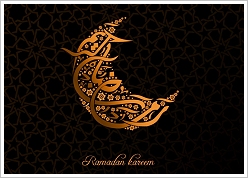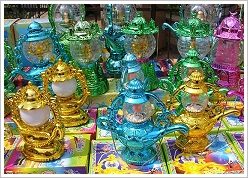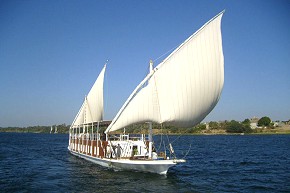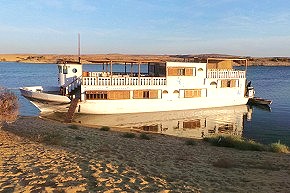We Provide
- Building Land
- Gabawi *1712 (350 sqm)
- Gorf *2105 (525 sqm)
- Gorf *2206 (700 sqm)
- Aqalta *2207 (1,050 sqm)
- House Building Service
- Architecture
- Real Estates
- Villa Hana, Ramla
- Shell Apartment Papyrus, Habu
- Apartment Hatshepsut 2, Gezira
- Apartment Hatshepsut 3, Gezira
- Apartment Hatshepsut 4, Gezira
- Holiday Flats
- Hatshepsut 1 (1 BR), Gezira
- Hatshepsut 2 (1 BR), Gezira
- Nile View (1 BR), Ramla
- Hatshepsut 3 (2 BR), Gezira
- Hatshepsut 4 (2 BR), Gezira
- Hatshepsut 5 (2 BR), Gezira
- Hatshepsut 7 (2 BR), Gezira
- Hatshepsut 9 (2 BR), Gezira
We Organise
We Report
- Sorry, no more news!
- News 2014 (26)
- News 2013 (76)
- News 2012 (92)
- December 2012 (4)
- November 2012 (12)
- October 2012 (7)
- September 2012 (12)
- August 2012 (4)
- July 2012 (2)
- June 2012 (7)
- May 2012 (4)
- April 2012 (11)
- March 2012 (10)
- Memnon Conference
- February 2012 (12)
- January 2012 (7)
- News 2011 (125)
- News 2010 (31)
- News 2009 (12)
- News Overview
Useful Tools
Dahabiya Nile Cruises• from Esna to Aswan |
Lake Nasser Cruises• from Aswan or Abu Simbel |
![]()
Living in Luxor - News in and around Luxor in July 2012
![]()
 When you mouse over a picture you will get a description and copyright information. Unless otherwise specified copyright is reserved by Living in Luxor. External links are marked with
When you mouse over a picture you will get a description and copyright information. Unless otherwise specified copyright is reserved by Living in Luxor. External links are marked with ![]() .
.
![]()
Moulid of Abu El-Haggag on 3rd/4th of July, Luxor East Bank
(04/07/12)
In 1221, Sheikh Yusuf Abu el-Haggag, born in Damascus or Baghdad, settled in Luxor on his way back from Mekka and founded a sufi order. The popular Sheikh was buried below the Abu el Haggag Mosque inside the Luxor Temple. In honour of Luxor’s patron sheikh, a two-day festival (moulid) takes places every year about 2 weeks before the beginning of the holy month of ramadan.
However, the festival also originates in the ancient Egyptian opet festival. The big boats which are nowadays pulled on the 2nd day of the festival in a procession through the streets of Luxor should remind of the sacred barques for the statues of the gods of Amun, Khonsu and Mut which were escorted in a joyous procession from the temple of Amun in Karnak to the temple of Luxor in order to relive their marriage and celebrate their rebirth.
Nowadays, during the parade men pull the boats by ropes (today in the blazing midday sun at approx. 48 degrees!) accompanied by riders on colourfully decorated camels and horses as well as by dancing men of almost every age. The streets are lined by celebrating people with party hats and stands selling sweets.
In ancient times, the festival served to renew ma'at, the ideal cosmic and social order: "Be happy, whole country! The good time has come." Insha'allah! Ho! Amen! So mote it be!
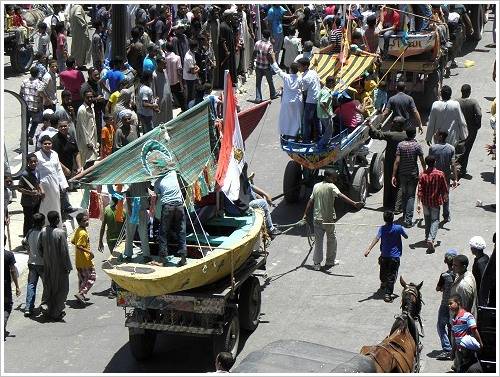
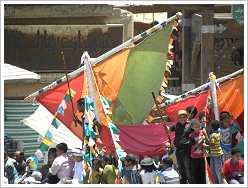
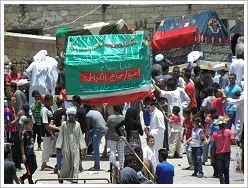
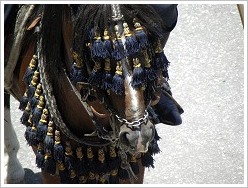
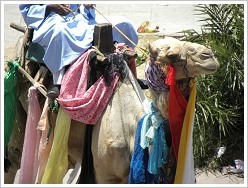
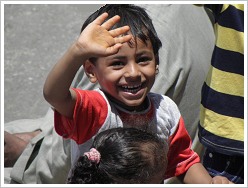
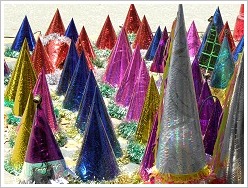
![]()
Start of Ramadan 2012, Egypt
(04/07/12)
This year
ramadan, the holy month of fasting and ninth month of the islamic moon calendar, will begin on 20 July. It starts every year about 11 days earlier as soon as the new crescent moon can be sighted with the naked eye.
Usually, the official announcement of the start date was eagerly waited until a couple of hours before ramadan began. This year, it was announced for the first time by the Nationwide Research institutes of Astronomy and Geophysics more than 3 weeks in advance - maybe due to the fact that our new Egyptian president is a scientist?
Fasting during Ramadan is one of the 5 pillars of Islam and obligatory for every healthy adult moslem. Fasting means, every day from dawn to sunset, to be abstinent from food, drinks, smoking, and sexual activity, and to put more effort into spiritual reflection and worship. At sunset, the families gather the fast-breaking meal known as Iftar. The meal starts with the eating of three dates or drinking water and an invocation prayer. Afterwards follows the evening prayer. Not before all that, everybody enjoys the main meal, preferably with family and friends. At the end of the dinner one third of one's stomache should be filled with food, one third with liquid, and one third should be left in blank.
If you travel to Egypt this August, nobody will exspect from you to fast also, but show your respect by going without food, drinks, and cigarettes outside of restaurants and hotels, and by taking heed of your clothing.
By the way, Egypt is famous for its Ramadan lanterns (fanous). Homes and streets are beautifully decorated with them.
